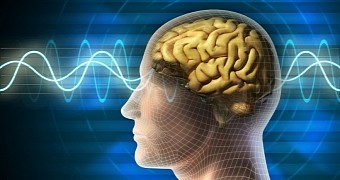Not to creep anyone out or anything of the sorts, but as it turns out, we humans kind of, sort of begin to ever so slightly decompose long before the Grim Reaper knocks on our door. Thus, scientists say that, as we get older, blood vessels in our brain get leaky.
What they mean is that, when we get past a certain number of birthdays, the blood-brain barrier quits being a stronghold and instead becomes this sponge-like biological structure that all sorts of chemical compounds can move through quite at their leisure.
A new insight into how aging affects the brain
In a report published in yesterday's issue of the journal Neuron, researchers with the University of Southern California in the US explain that, as part of their work, they mapped the brains of 64 volunteers of various ages.
When comparing the anatomy and the behavior of the brains of these study participants, the scientists found that the older volunteers showed significant signs of vascular leakage in an area of the brain known as the hippocampus.
In case anyone was wondering, the hippocampus is a brain region that plays a major role in learning and memory processes. Interestingly enough, this brain area displays signs of considerable damage in the case of people diagnosed with Alzheimer’s.
A better understanding of neurological disorders
Writing in the journal Neuron, the scientists behind this investigation say that, when having a closer looks at the brains of the elderly volunteers included in this study, they found the ones belonging to Alzheimer’s sufferers to be leakier that those belonging to healthy individuals.
Hence, the researchers theorize that the onset of this neurological disorder might be facilitated by the breakdown of the blood-brain barrier. Specifically, they say that a faulty blood-brain barrier can make it possible for harmful chemical compounds to reach the hippocampus and damage it.
“This is a significant step in understanding how the vascular system affects the health of our brains,” study principal investigator Berislav V. Zlokovic commented on the outcome of this investigation in a recent interview with the press.
Developing a treatment for Alzheimer’s
If the researchers are right and a leaky blood-brain barrier does, in fact, contribute to the onset of Alzheimer’s by enabling damage to the hippocampus, this find could translate into new treatment options for this condition, maybe other neurological disorders as well.
More precisely, the University of Southern California specialists say that, all things considered, it might be possible to prevent damage to the brain and, consequently, Alzheimer’s simply by finding a way to restore the integrity of blood vessels in the brain.
As Berislav V. Zlokovic put it, “To prevent dementias including Alzheimer’s, we may need to come up with ways to reseal the blood-brain barrier and prevent the brain from being flooded with toxic chemicals in the blood.”

 14 DAY TRIAL //
14 DAY TRIAL //